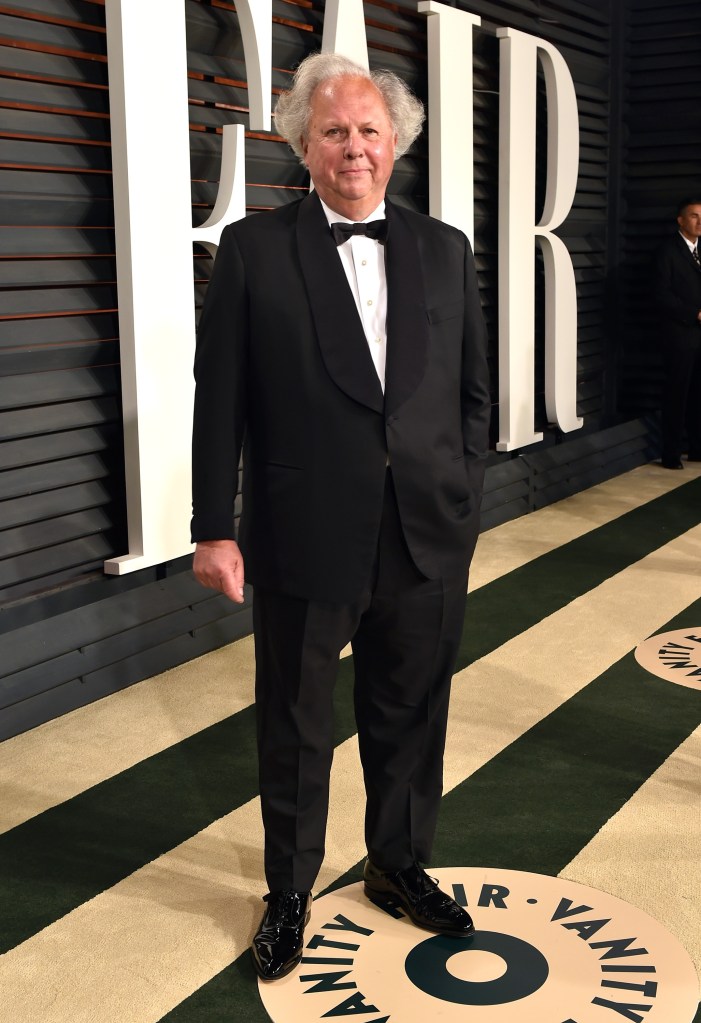Ex-Vanity Fair writer reveals he was paid $500K to write 3 stories per year: ‘Yes, I realized it was obscene’
A former star writer for Vanity Fair magazine says he earned half a million dollars annually to write just three stories for the Condé Nast-owned publication during its “heyday” under then-editor-in-chief Graydon Carter.
Bryan Burrough, the investigative journalist and author who is best known for co-writing the seminal book said he devoted just six months out of the year to doing 10,000-word pieces for Vanity Fair, which paid the equivalent of more than $166,000 per article.
“For twenty-five years, I was contracted to produce three articles a year, long ones, typically ten thousand words,” Burrough, who worked at Vanity Fair from 1992 until around 2017, wrote in the
“For this, my peak salary was $498,141. That’s not a misprint — $498,141, or more than $166,000 per story.”
Burrough added that the $166,000 sum is a “good advance for an entire book.”
“Yes, I realized it was obscene. I took it with a grin,” he wrote.
As if that weren’t enough, Burrough detailed lucrative opportunities that emerged when his articles were optioned by Hollywood studios, which paid between $15,000 and $25,000.
A few of the offers even surpassed six figures.
“Every third or fourth article I wrote ended up optioned for the movies,” Burrough wrote.
The writer described a surreal scene watching Robert De Niro on a film set “as he reads your own words back to you” after one studio considered adapting one of his stories into a movie.
In the December 1999 edition of Vanity Fair, Burrough wrote which told the tale of Miranda Grosvenor.
Miranda Grosvenor was the alias of Whitney Walton, a Baton Rouge social worker who captivated dozens of celebrities, among them De Niro and Warren Beatty, in the 1980s and ’90s through seductive, anonymous phone calls — without ever meeting them in person.
Her true identity was revealed by Burrough, turning her into an early example of real-life catfishing before the internet era.
He wrote that “sadly, that adaptation … never made it past development.”
Burrough lamented the fact that “nowadays … such windfalls are a distant memory.”
“Today, for a rare magazine article, I’m lucky to receive two dollars a word, or $20,000 for that same ten-thousand-word story,” he wrote, adding: “Don’t even ask what [the Yale Review is] paying me for this piece.”
Burrough wrote that his Vanity Fair gig included other perks such as breakfast that was expensed to the company as well as stays at five-star, luxury hotels such as the Four Seasons in Sydney and Claridge’s in London.
He described other benefits that came with being employed at Condé Nast including “dinner parties at one’s home [that] could be catered on the company’s dime” as well as “town cars [that] famously stood ready to whisk you anywhere.”
“Editors received interest-free loans to buy new homes,” according to Burrough.
The company “even covered moving costs,” the author wrote.
“There was an ‘eyebrow lady’ who swanned in to tweeze everyone’s brows.”
Burrough’s article was a review of Carter’s upcoming memoir, which goes on sale March 25.
The memoir touches on darker moments, including internal office politics and Carter’s eventual conflict with Condé Nast management over structural changes imposed by rival editor Anna Wintour.
Carter’s departure in 2017 symbolized the end of an era, coinciding with the digital transformation and decline in print revenues.
Burrough, now distanced from magazine writing, reflected without bitterness, expressing gratitude for the opportunities he enjoyed.
“I understood the gift I’d been given,” he wrote.
“We had a great run. In the vanishing world of American magazines, I suspect there will never be another like it.”
The Post has sought comment from Carter and Condé Nast.







